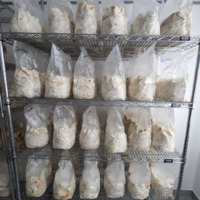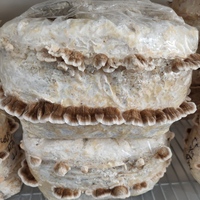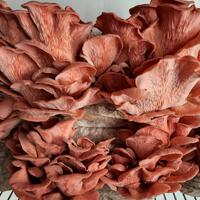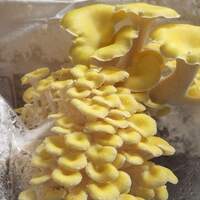
Mushroom Mycelium




What is Mycelium?
Mycelium is the vegetative part of fungi, consisting of a network of thread-like structures called hyphae. This underground web acts as the fungus's root system, facilitating nutrient absorption and forming intricate mycelial networks. Mycelium plays a crucial role in various ecosystems by decomposing organic matter. Recently, it has gained attention for its versatile applications, serving as a sustainable material for industries like textiles, packaging, construction, and as a base for meat substitutes, showcasing its potential in shaping a greener and more innovative future.
Sustainable Textiles
Mylium, a Dutch startup founded in 2018, transforms mycelium into leather-like textiles. Adaptable in thickness, color, and finishing, Mylium focuses on the handbag industry. Additionally, they collaborate on the "TUFUCOL" project, exploring fungal colorants for non-food applications.
Sustainable Packaging
UK-based Magical Mushroom Company utilizes mycelium combined with agricultural waste to create Mushroom® Packaging. Biodegradable, durable, and cost-effective, it replaces traditional packaging derived from fossil fuels. The material is hydrophobic, flame-resistant, resilient, insulating, and breathable, with manufacturing locations in Nottingham and Sofia.
Sustainable Construction
Netherlands biotech company Grown Bio employs mycelium for compostable packaging, building materials, and interior design items. Collaborating with European partners, they enhance mycelium panels for professional building industry accreditation, aiming to divert industrial sidestream ingredients from landfill.
Mycelium as a Meat Substitute
Various European companies explore mycelium-based meat substitutes. Companies like ENOUGH (Scotland), eniferBIO (Finland), Libre Foods (Spain), Mycorena (Sweden), Funki (Estonia), Mati Foods (Estonia), and Adamo Foods (UK) employ mycelium for innovative and sustainable alternatives, offering a diverse range of products using fermentation technology.
